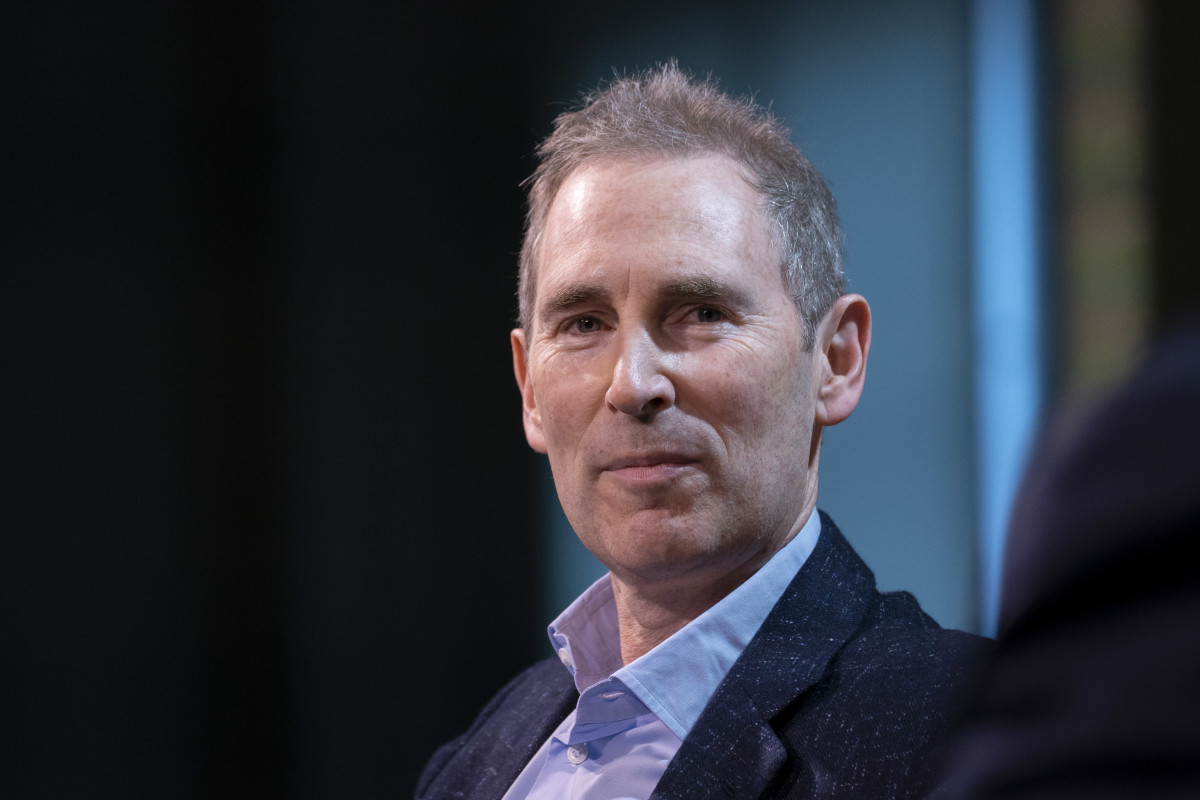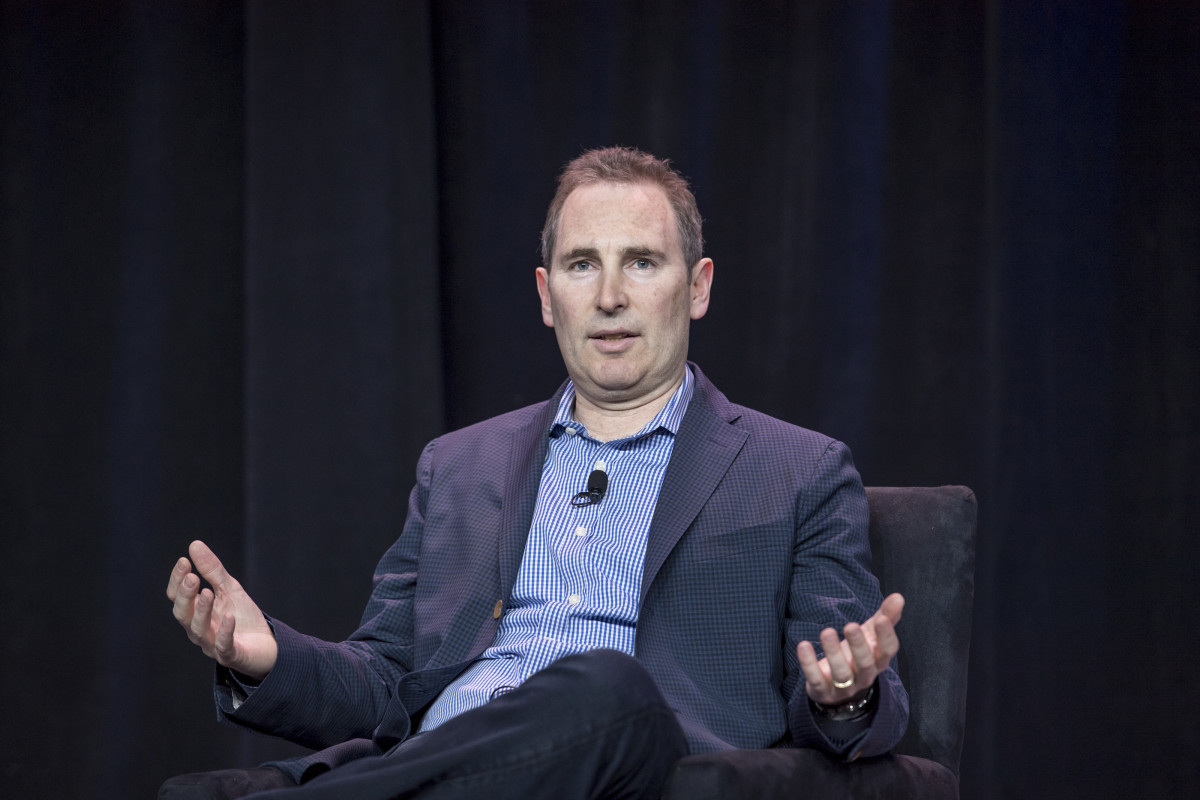
Amazon is an e-commerce Goliath, but that's not why it was one of the year's top performers. The company's stock price has benefited from growing interest in developing artificial intelligence applications because much of the training and operating of these apps is being done in its Amazon Web Services (AWS) cloud network.
As a result, Amazon's shares rallied 72% higher year-to-date through mid-September. The company's stellar performance likely meant many were caught off guard when Amazon's stock dropped 18% from its mid-September highs to its low on Oct. 26.
Real Money Pro analyst Bruce Kamich wasn't one of them. Within days of Amazon's September peak, he switched gears from bullish to bearish, saying, "Gravity could soon take control of prices," advising investors to sell shares if its price declined below $136.
His analysis proved prescient, given shares retreated to as low as $118.35 on Oct. 26. So, investors should pay attention to what he thinks may happen next to Amazon's stock.

Amazon rides a wave of AI interest
Amazon is best known as an e-commerce Goliath that competes tooth-and-nail with Walmart (WMT) -) superstores. Since Jeff Bezos founded Amazon in his garage in 1994, the company has expanded to sell almost everything everywhere.
While online retail sales account for the lion's share of Amazon's revenue, another less commonly known business has been the big driver of its profitability. AWS was only an emerging business in 2008, but nowadays, it's a highly profitable business with over $90 billion in annualized revenue.
Related: Amazon delivers crushing blow to remote workers
The embrace of AWS cloud-based storage solutions accelerated during Covid as companies rushed to make more data easily accessible to remote workers. Secular trends also support AWS' growth as easy access to data results in even more data being stored, shared, and analyzed.
Most recently, AWS has enjoyed tailwinds stemming from a gold rush of AI development reminiscent of the Internet boom in the 1990's.
Following the successful launch of OpenAI's generative AI program, ChatGPT, last year, companies worldwide have launched projects evaluating AI's potential. Finance companies are using it to hedge portfolios, healthcare companies are considering its ability to assist in drug candidates for research, and retailers are assessing its ability to prevent theft.
More Business of AI:
- Here's the startup that could win Bill Gates' AI race
- Meet your new executive assistant, a powerful AI named atlas
- The company behind ChatGPT is now facing a massive lawsuit
The possibilities seem endless, and that's increased the utilization of AWS services. In the second quarter, AWS revenue grew 29% year-over-year, and despite IT budget crackdowns elsewhere, its revenue grew 12% year-over-year in the third quarter to $23.1 billion.
The business should continue performing well, according to CEO Andy Jassy.
"There’s a lot of growth in front of AWS; I’m very optimistic about it,” said Jassy on Amazon's third-quarter conference call. "Customers want to bring the models to their data, not the other way around. And much of that data resides in AWS as the clear market segment leader in cloud infrastructure."
AWS cloud market share is 32%, much higher than Microsoft's (MSFT) -) Azure and Alphabet's (GOOGL) -) Google Cloud market share of 23% and 10%, respectively.
Amazon's stock price charts reveal new price target
Bruce Kamich is a technical analyst who has professionally analyzed price and volume charts and indicators for over 50 years. His bullish view of Amazon shares earlier this year and his bearish turn in September resulted from the use of technical analysis.
Amazon's stock, at $145.18 at the Nov. 17 close, has rebounded 21% from its October lows. So, Kamich recently revisited his analysis for new insight.
"I can see upper and lower shadows over the past five months as traders rejected the highs at times and rejected the lows at times," wrote Kamich. "The daily On-Balance-Volume (OBV) line has moved higher with an up and down pattern. The Moving Average Convergence Divergence (MACD) oscillator has corrected lower in August, September, and October but shows some improvement in early November."
On balance volume is essentially a running total of up minus down day volume, while MACD is a momentum indicator. For Kamich to be convinced the most likely path is higher, he'd like to see a more persistent increase in up-day volume and longer-lasting momentum.
For this reason, Kamich thinks investors should approach Amazon stock carefully, even though Amazon's daily point and figure chart suggest a price target of $202. Point and figure charts can help investors gauge potential risk and reward. However, they don't predict timeframes, and there's no guarantee that price targets will be achieved.
Kamich is suspicious of whether Amazon's broadening price pattern will evolve into a bullish continuation pattern, so he concludes, "I recommend a cautious approach to trading in AMZN."
Sign up for Real Money Pro to see what other stocks Kamich thinks could be winners.







